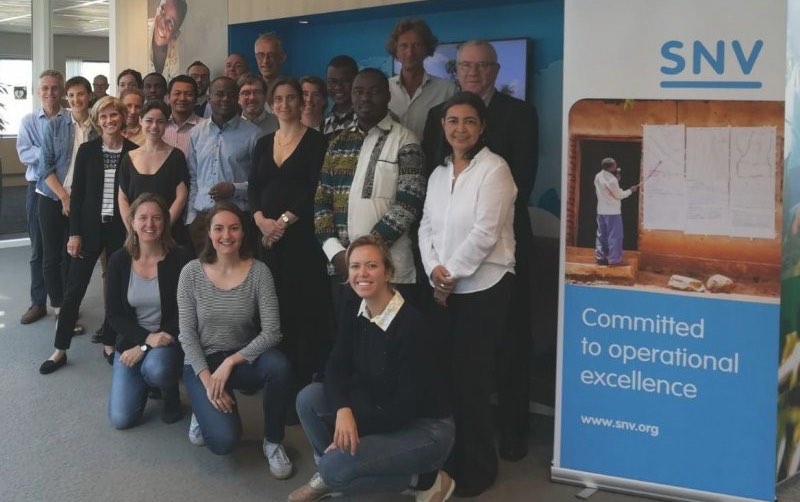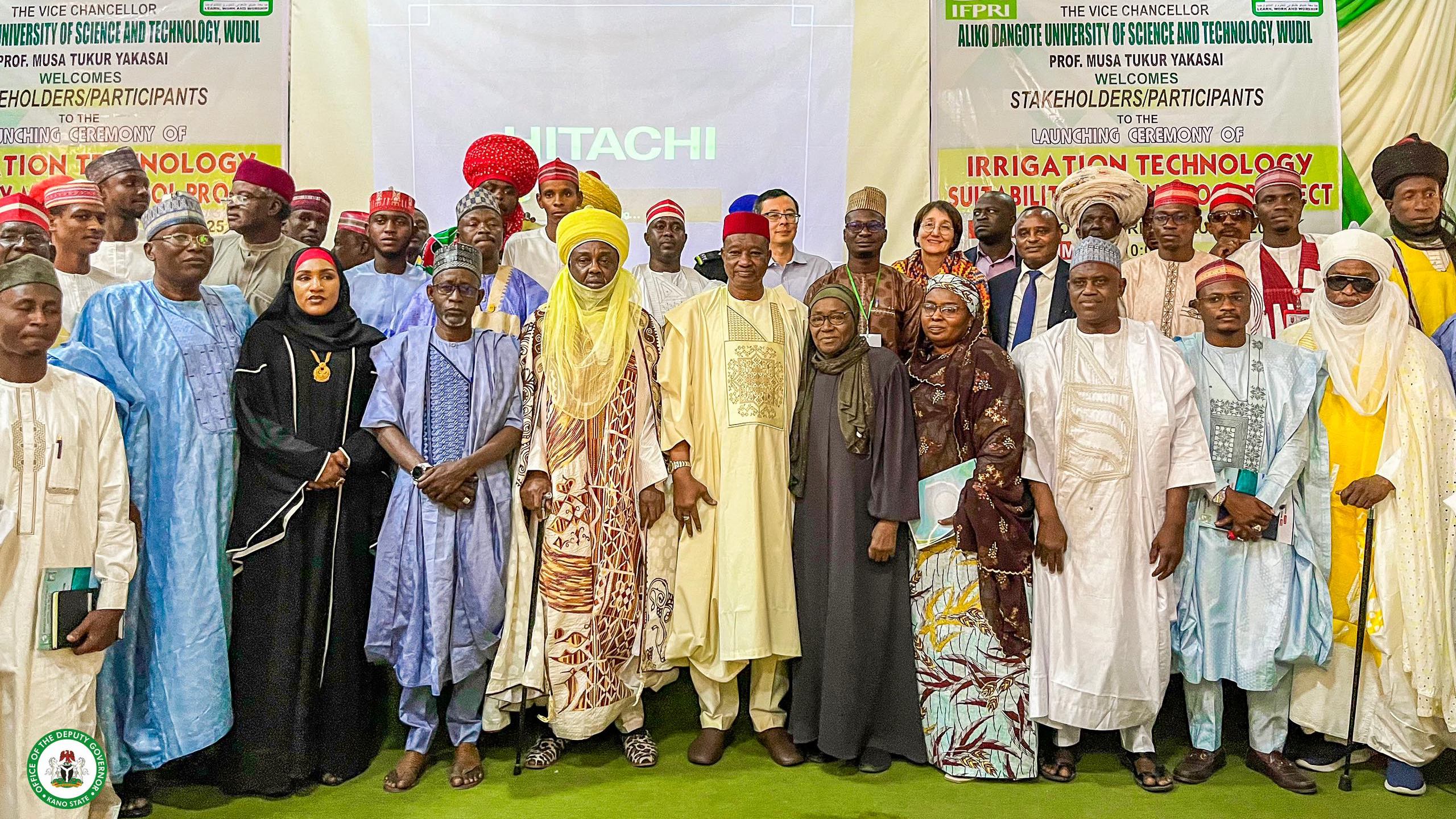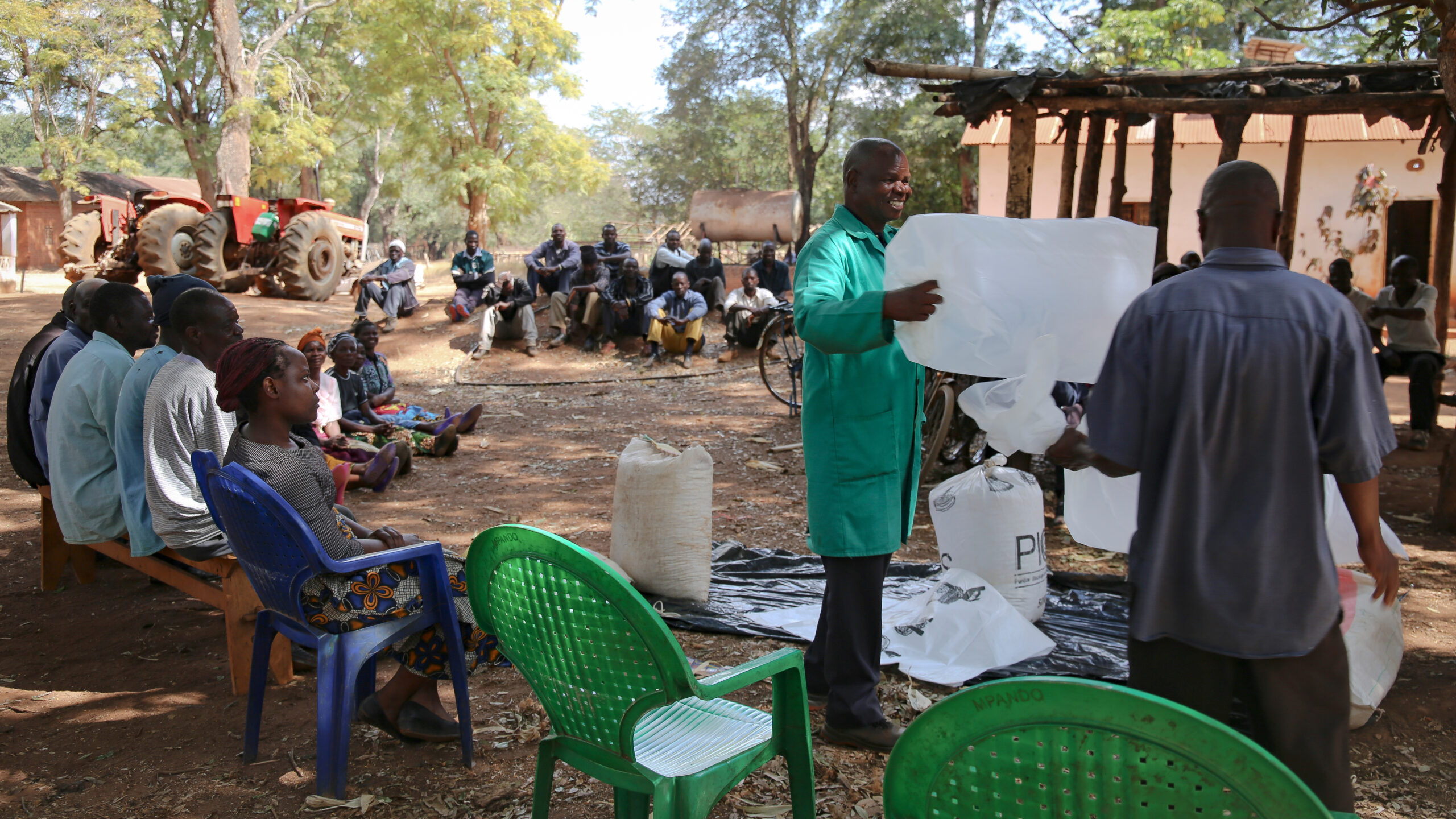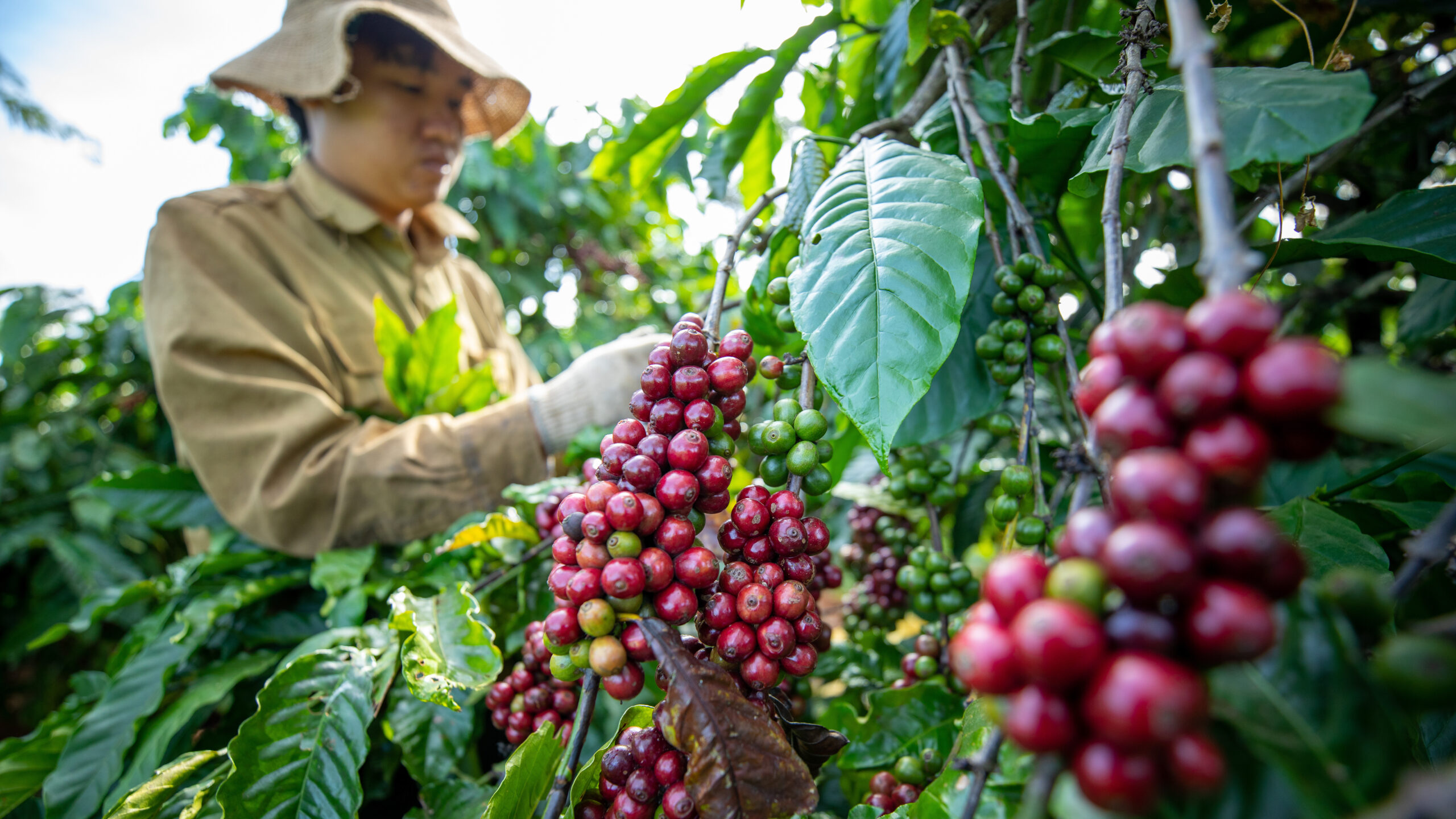On June 13-14, SNV and IFPRI held our annual Voice for Change Partnership (V4CP) meeting to reflect and exchange experiences from the last year. This is the fourth year of the V4CP project, which works across multiple countries and sectors to stress capacity development, generation of evidence, and support to the advocacy efforts of local civil society organizations (CSOs). These are the strategies that we believe will lead to systems change and meaningful results. This three-part blog series will explore some of the key lessons we learned from our exchanges. Stay tuned for posts on capacity development and evidence-based advocacy.
Lesson 1: the power of hard evidence and data in affecting change
Evidence has been a key factor in advocacy in all of the countries where the V4CP project works: Burkina Faso, Ghana, Honduras, Indonesia, Kenya, and Rwanda. During the meeting, we dove deeper to ask ourselves: “How do we generate evidence? How do we disseminate and translate evidence to different audiences?” We had several takeaways on how the power of hard evidence and data can work in effecting change.
The role of IFPRI as a renowned international research institute is key. IFPRI works closely with SNV country offices and CSOs to generate top-quality evidence that underpins and supports CSOs’ advocacy efforts on food and nutrition security (FNS) and resilience. These cooperative efforts have had many positive outcomes:
In Ghana, IFPRI research on post-harvest losses (PHL), including a look at their scale and overview, a review of the evidence , and an examination of PHL technologies , resulted in the government’s incorporation of PHL issues in its Medium Term Development Plans and in the formation of the Upper West Regional Post Management Platform.
In Burkina Faso, evidence that family farms can curb malnutrition with better inputs and support resulted in a national budget increase for improved seeds, fertilizers, extension services, and equipment—despite an overall budget crunch due to security challenges in the country. Since January, members of parliament have cited this evidence in at least four TV debates to show how it’s possible to achieve sustainable FNS in Burkina Faso.
In Kenya, SNV and IFPRI worked with CSOs to analyze how well the milk industry complies with regulations. The resulting data is helping to change industry practices and boost the public’s knowledge. For example, raw milk samples were collected from a mixture of dairy shops, milk bars, and markets, and 80% of them were found to be neither refrigerated nor cooled as regulations require. In order to increase producers’ and vendors’ awareness of these important public health rules, these and other findings were shared with dairy stakeholders and high-level seminars were held to disseminate the information—which also resulted in significant media engagement and increased public awareness. This evidence is now informing dairy sector strategic plans in several counties, including Nakuru, Nyandarua, and Murang’a.
The process of evidence generation and collaboration
Through the learning event we also found that the process of how evidence is generated is as important as our ability to use that evidence to influence change. A partnership between a research institute, a development organization, and CSOs is a learning experience, and since 2016, this partnership has evolved and contributed to positive change and impact on the ground. With strengthened capacities, CSOs have been increasingly able to better identify the information they need to improve their advocacy efforts.
In several countries, IFPRI and the CSOs generate evidence in a collaborative process for maximum impact. Together, we have learned that this evidence must be user-friendly, understandable, and geared toward solving a collectively identified issue. Such evidence can then be effectively packaged and used to engage policy makers to effect change.
For example, in Rwanda, the process of developing tools for CSOs to use in conducting their research and analysis has empowered them with knowledge and skills. The Rwanda Development Organisation (RDO) is now equipped to conduct budget tracking analyses and will be teaching this in upcoming training in Kenya.
Having seen the importance of localized research in impacting policy makers, CSOs in Indonesia also made it their priority to develop the skills to carry out research themselves. IFPRI transferred survey research techniques knowledge to CSOs including KONSEPSI, which has recently been conducting its own surveys on stunting, used by district officials in their work. Watch this video to learn more.
CSOs and research
Through the V4CP partnership, CSOs have gained a better understanding of the need for evidence in advocacy and are acquiring critical skills for accessing, generating, and interpreting evidence and data for improved advocacy. For example, in Honduras, CSOs filled key information gaps through a process of participatory evidence-gathering and analysis on the importance of clean cookstoves.
Conclusion and next steps
From these many exchanges, we have learned that once you gain the tools to analyze evidence and uncover the complex realities on the ground in developing countries, the possibilities for effecting change are endless.
Zala Žbogar is a Marketing Communications Specialist with SNV’s Global Support Unit; Eric Banye is a V4CP Country Programme Manager. This post first appeared on the SNV blog.







